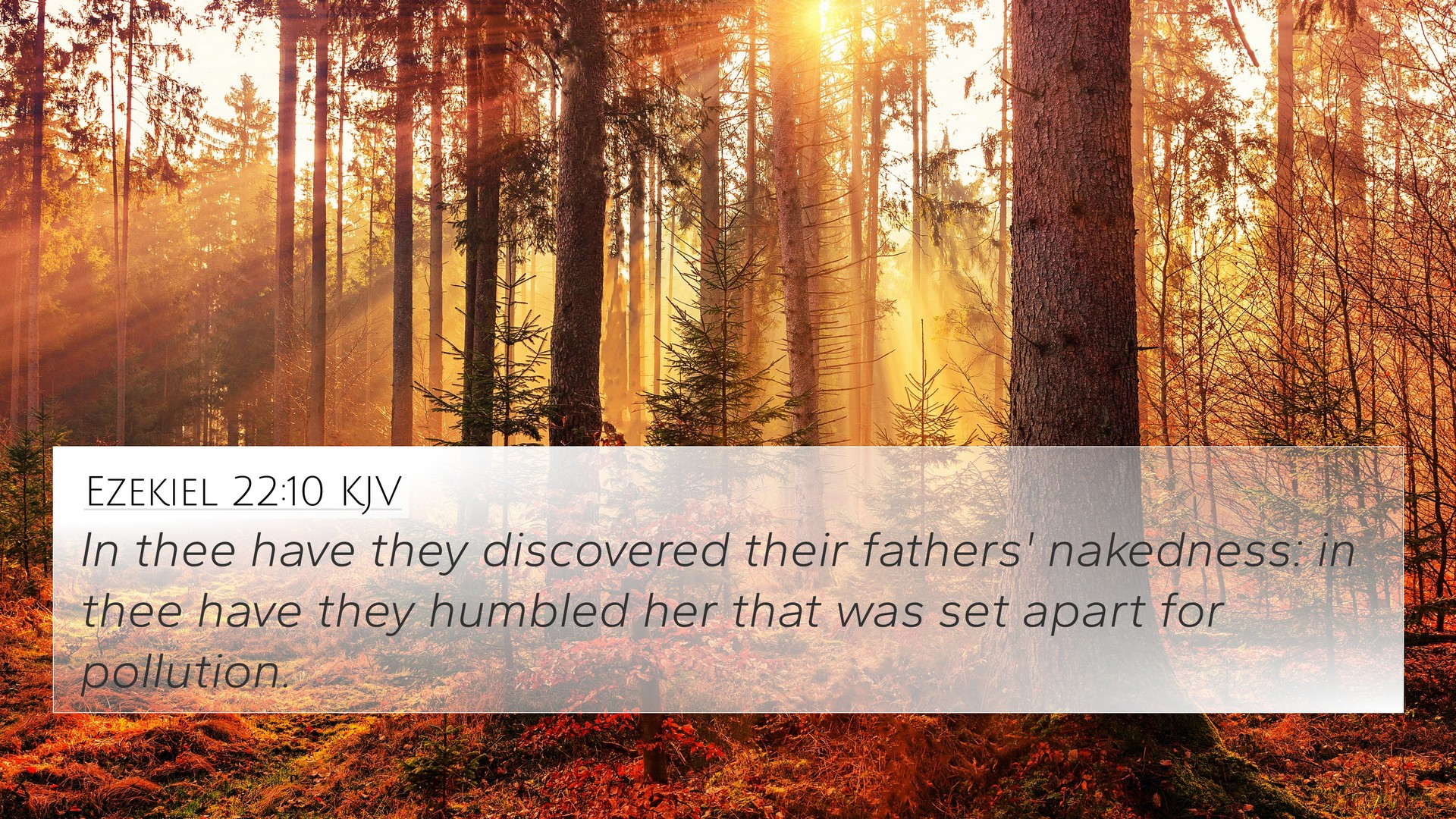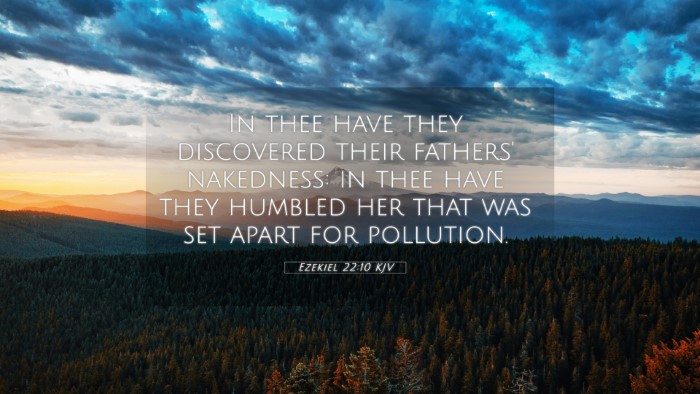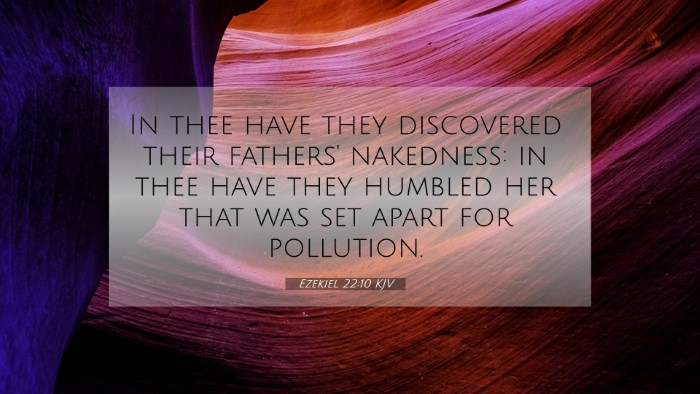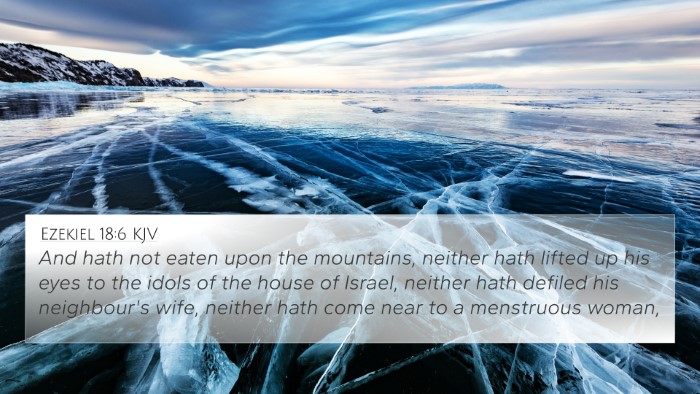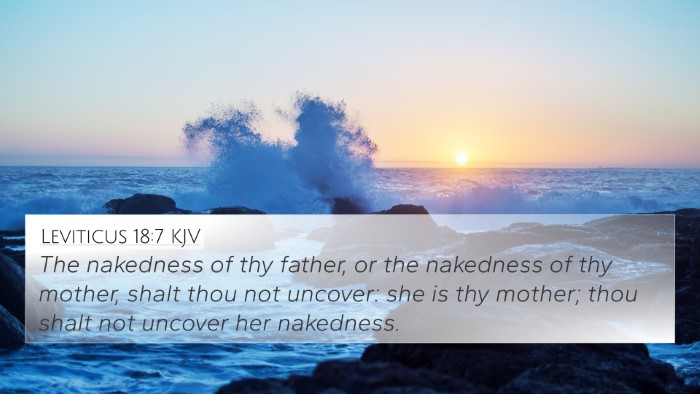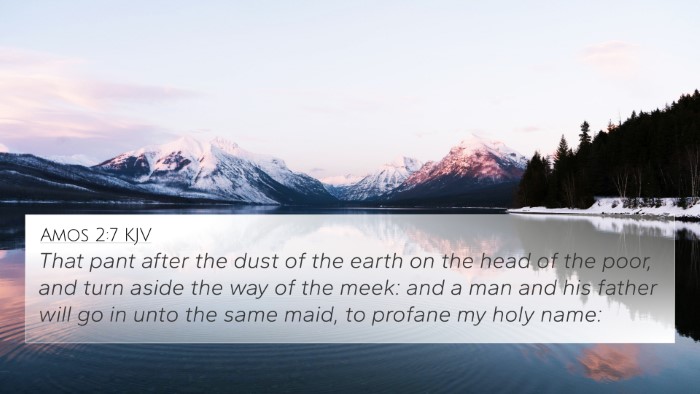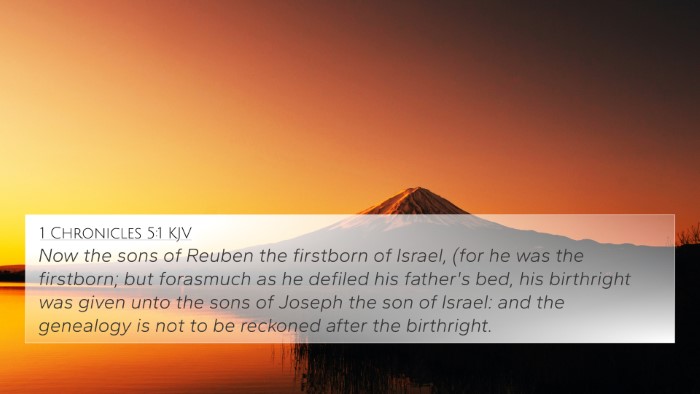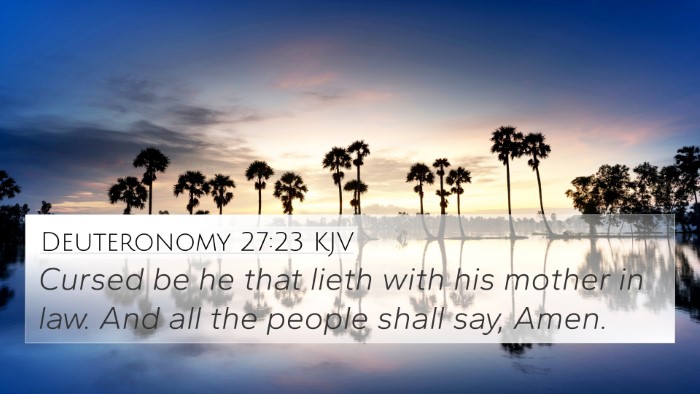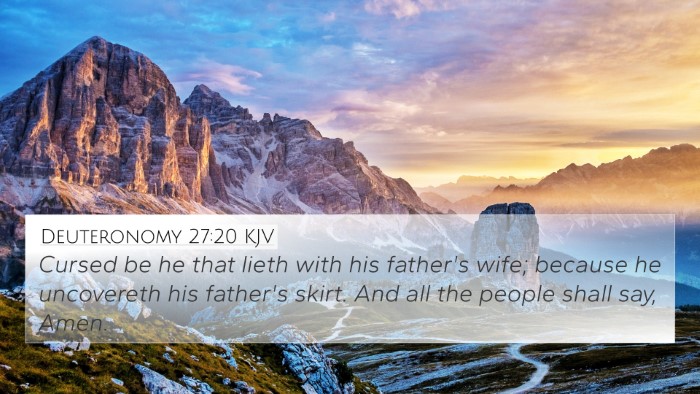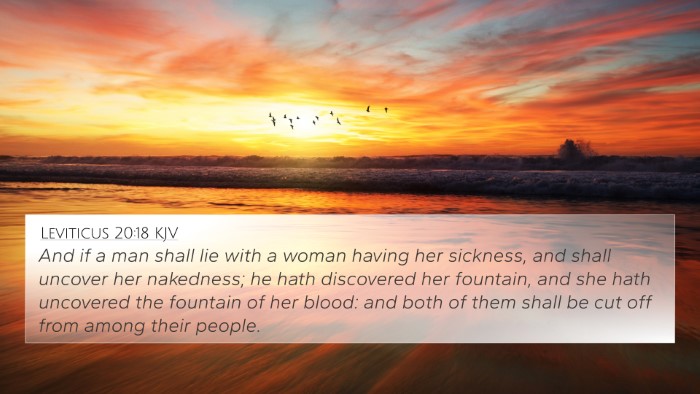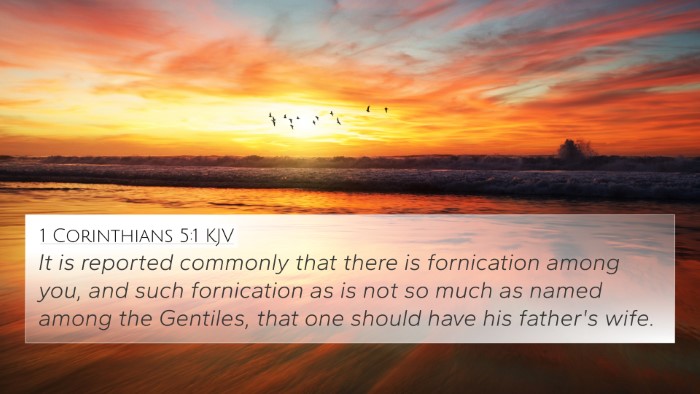Ezekiel 22:10 Meaning and Interpretation
Ezekiel 22:10 states:
"In thee have they discovered their fathers’ nakedness: in thee have they humbled her that was set apart for pollution."
This verse is a powerful indictment of the moral decay and corruption that had taken root within Jerusalem. The prophet Ezekiel addresses the sins of the people, particularly the serious offenses against familial and moral sanctity.
Commentary Insights
Insights from multiple public domain commentaries shed light on the underlying meanings of this verse:
-
Matthew Henry:
Henry remarks on the metaphorical language used in Ezekiel, suggesting that “the nakedness” refers to shame and dishonor. He emphasizes that the people have not only brought shame upon themselves but have also disrespected the sanctity of familial relationships. The reference to “pollution” underscores the idea of moral degradation, particularly in how the people behaved against God’s design for family and community integrity.
-
Albert Barnes:
Barnes discusses the context of sin in which the people of Jerusalem were ensnared, implying that the exposure of “nakedness” symbolizes not just physical disgrace, but also spiritual unfaithfulness. He connects this to broader themes of idolatry and the perversion of divine order within society. He warns of the consequences that come from abandoning God’s commandments.
-
Adam Clarke:
Clarke provides a detailed analysis of societal implications, expressing that the behaviors of the people included not just personal sin but a collective decay of social morals. He views "humbling" as an act of degradation aimed at others, thereby contributing to a systemic failure of moral standards within communities.
Bible Verse Cross-References
The significance of Ezekiel 22:10 can be enriched by considering related passages that echo its themes:
- Leviticus 18:7-8: This passage addresses the laws concerning family relations and the importance of keeping such sanctities sacred.
- Deuteronomy 22:30: A prohibition against uncovering the nakedness of one’s father, emphasizing the seriousness of familial responsibilities.
- 1 Corinthians 5:1: Paul talks about sexual immorality among the Corinthians, drawing a parallel to the sin Ezekiel speaks of.
- Romans 1:24-27: The apostle Paul discusses the consequences of turning away from God and indulging in immoral behaviors, reflecting the results of societal decay.
- Isaiah 47:3: This verse speaks to the exposure of shame and the judgment against Babylon, comparable to Jerusalem’s critique in Ezekiel.
- Galatians 6:7: Highlights the idea that one will reap what they sow, resonating with the consequences of the sins laid out in Ezekiel.
- Micah 3:11: Critiques the judges for corrupt practices, which aligns with the societal criticism found in Ezekiel 22.
Understanding Themes in This Verse
Several thematic connections can be made concerning Ezekiel 22:10:
- Moral Decay: The concept of moral corruption and its impact on the community.
- Family Integrity: The importance of safeguarding familial relations as ordained by God.
- Social Justice: The repercussions of societal sin and its manifestations in public life.
Scriptural Cross-Referencing Techniques
When studying Bible verses such as Ezekiel 22:10, consider these tools and methods:
- Bible Concordance: Use a concordance to find specific topics related to your verse of interest.
- Bible Cross-Reference Guide: This can assist in identifying related scriptures that elaborate on central themes.
- Cross-Reference Bible Study: Engage with various Bibles that provide built-in cross-references.
- Comprehensive Bible Cross-Reference Materials: Resources designed to provide connections across the entire Bible.
Practical Application
Understanding Ezekiel 22:10 serves as a crucial reminder of the need for personal and communal integrity. In contemporary applications:
- Uphold moral standards in one’s personal life and within community frameworks.
- Engage thoughtfully in conversations about ethics and family sanctification.
- Utilize cross-referencing techniques to deepen your understanding while studying Bible themes.
To explore the connections between this verse and broader scriptural narratives, practitioners can ask questions like:
- What verses are related to Ezekiel 22:10?
- How do Ezekiel’s warnings shape our understanding of accountability today?
- What similarities exist between this verse and teachings found in the New Testament?
In doing so, we foster an environment where the Bible's wisdom can inform our daily lives, sustain our communities, and promote moral clarity.
